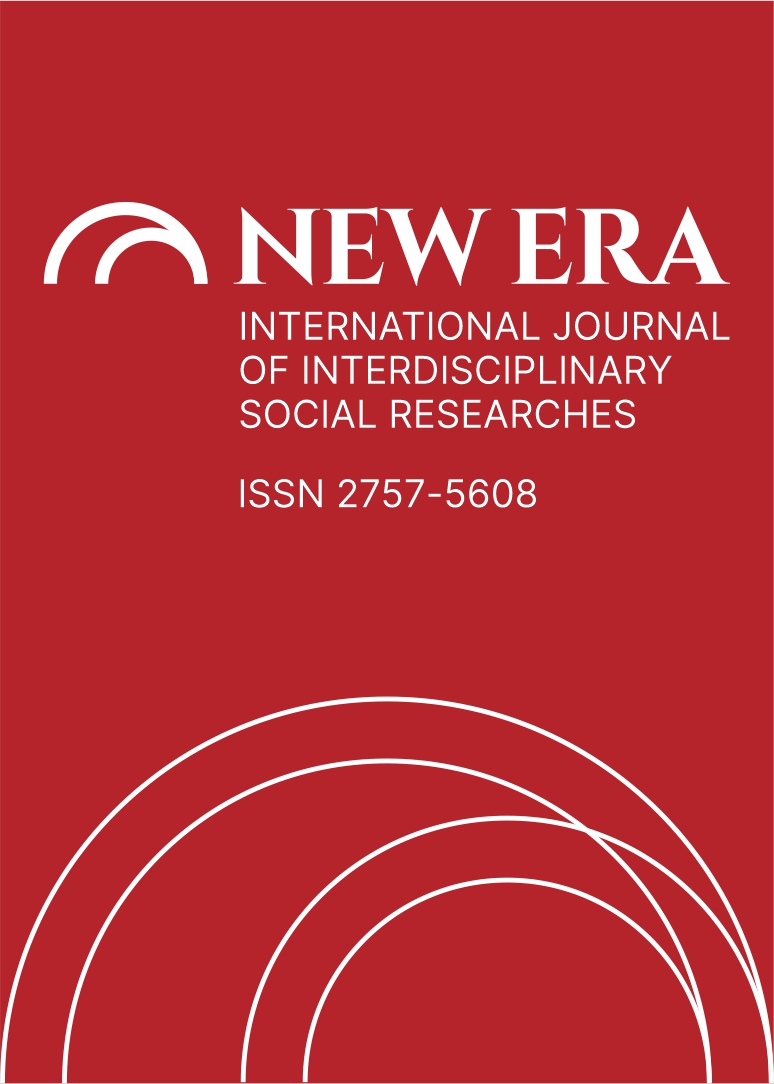ENDLESS HOPE IN DAVID BRINE’S THE POSTMAN AND JOSÉ SARAMAGO’S BLINDNESS
DOI:
https://doi.org/10.5281/zenodo.8186419Keywords:
Eco-fiction, Hope, Post-apocalyptic, The Postman, BlindnessAbstract
Post-apocalyptic fiction is a literary subgenre that deals with the end of the world as a result of nuclear or biological warfare, as well as ecological, geological, or cosmological disasters, and what form of existence awaits those who survive such immense damage. Post-apocalyptic works include David Brin's The Postman and José Saramago's Blindness. In The Postman, Gordon Krantz, the protagonist of the novel wears a U.S. Postal Service uniform and he collects to convince people that the United States has survived the apocalypse. The novel describes the collapse of the Earth due to reasons such as epidemics, nuclear wars, famines, and climate change. Blindness is told while a man is waiting for the green light to come on in traffic, he suddenly becomes blind and an epidemic of blindness spreads through the city through this man. Although this blindness is not epidemic fatal, it is succeed in destroying all moral values. People trying to live in a world where there is no hope have come to the point of extinction. Brin's protagonist, Gordon Krantz, and Saramago's protagonist, the doctor's wife, are at the center of post-disaster events. The protagonists of both novels are leaders who give people hope that everything will be better in the future. The purpose of this study is to examine endless hope in David Brine’s The Postman and José Saramago’s Blindness.
References
Akpınar, Berna vd. “Mekanın Duyusal Paradoksları: Blindness (Körlük) Filmi Üzerinden Bir Pandemi Okuması”. YDÜ Mimarlık Fakültesi Dergisi 3/2 (2021), 92-114.
Boz, Mikail. 2000 sonrasi Amerikan Post-Apokaliptik Bilimkurgu Sinemasında Kıyamet İdeolojisi. İzmir: Ege Üniversitesi, Sosyal Bilimler Enstitüsü, Doktora Tezi, 2018.
Boz, Mikail – Takımcı, Dilek. “Amerikan post-apokaliptik bilimkurgu sinemasında kıyamet ideolojisi (1924-2000)”. Akdeniz Üniversitesi İletişim Fakültesi Dergisi 31 (2019), 377-403.
Brin, David. The Postman. London: Bantan Books, 1997.
Clasen, Mathias. “Imagining the end of the world: A biocultural analysis of post-apocalyptic fiction”. Evolution and popular narrative. ed. Dirk Vanderbeke – Brett Cooke 64-82. Boston: Brill, 2019. https://doi.org/10.1163/9789004391161_005
Collins, John Joseph. The Apocalyptic Imagination: An Introduction to Jewish Apocalyptic Literature. Cambridge: Eerdmans, Second Edition, 1998.
Costa, Margaret Jull. “On Saramago”. The Threepenny Review. 133 (Spring 2013), 10-12.
Çelik, Ejder. “Distopik romanlarda toplumsal kurgu”. Sosyoloji Araştırmaları Dergisi, 18/1 (2015) 57-79. https://doi.org/10.18490/sad.26868
DB, davidbrin.com, David Brin: scientist, best-selling author, tech-consultant and speaker. Erişim 11 January 2023. https://www.davidbrin.com/
De Cristofaro, Diletta. “Critical temporalities: Station Eleven and the contemporary post-apocalyptic novel”. Open Library of Humanities, 4/2 (2018) 1–26. https://doi.org/10.16995/olh.206
Harris, Emma Anne. The Post-Apocalyptic Film Genre in American Culture 1968-2013., Leicester: University of Leicester, PhD thesis, 2016.
Isomaa, Saija. “From Anxiety to Hatred: Negative Emotions in Classical Dystopias”. New Perspectives on Dystopian Fiction in Literature and Other Media. Saija Isomaa et al. 3-26. Newcastle: Cambridge Scholars Publishing, 2020.
Hill, Tessa. “Post-Apocalyptic Literature: Humanity’s Survival Tool”. Proceedings of the National Conference on Undergraduate Research (NCUR) (05-07 April 2018). 125-133 Oklahoma: University of Central Oklahoma, 2018.
İmamoğlu, Abdulfettah. “Apokaliptik modernizm, bilim-kurgu ve mekânın sonu”. MOLESTO: Edebiyat Araştırmaları Dergisi 2/1 (2019), 12-34. https://doi.org/10.33406/molesto.512850
Lisboa, Maria Manuel. The end of the world: Apocalypse and its aftermath in Western culture. United Kingdom: Open Book Publishers, 2011.
McGinn, Bernard. Visions of the End: Apocalyptic Traditions in the Middle Ages. New York: Columbia University, 1979.
Saramago, jose. Blindness. Great Britain: The Harvill Press, 1997.
Tanrıtanır, Bülent Cercis – Adil Liva. “The Illustrated Utopian Society in the Road and The Postman by David Brin and Cormac McCarthy”. International Journal of Languages’ Education and Teaching 6/2 (June 2018), 72-78. https://doi.org/10.18298/ijlet.2977
Tanritanir, Bülent Cercis – Karaman, Fatma. Ecology Dystopia and Fictionalization. Ankara: İksad publishing house, 2021.
Tanrıtanır Bülent Cercis – Sider A. “Post-Apocalyptic Time Reversal and Human Psychology in The Drowned World by J.G. Ballard”. 8th International Conference on Narrative and Language Studies. ed. . Öznur Yemez – Mustafa Zeki Çıraklı. 45. Trabzon: Karadeniz Technical University, 2019.
Voigts, Eckart – Boller, Alessandra. Dystopia, Science Fiction, Post-Apocalypse. Trier: Wissenschaftlicher Verlag Trier, 2015.
Downloads
Published
How to Cite
Issue
Section
License
Copyright (c) 2023 NEW ERA INTERNATIONAL JOURNAL OF INTERDISCIPLINARY SOCIAL RESEARCHES

This work is licensed under a Creative Commons Attribution-NonCommercial 4.0 International License.


